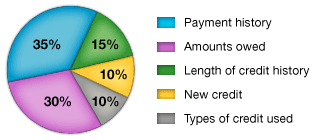Unless the mortgage is assumable, generally speaking, when real property (subject to a deed of trust or a mortgage) is conveyed or transferred to another person; the mortgage that the seller or transferor has needs to be paid off and the property is either purchased by the new owner(s) in all cash or by way of a new mortgage from the new borrowers or transferees. This is referred to as the "due on sale" clause in your mortgage.
What occurs, however, when title, deed or ownership of the property is transferred to another upon death of the owner through probate of a will or through inheritance?
Federal law provides some exceptions to the "due on sale" clause when the property subject to a mortgage (other than a reverse mortgage) is being transferred as a result of the person's death. A full list of the exceptions to the "due on sale" rule can be found in The Garn St. Germain Depository Institutions Act of 1982, (U.S.C.) 1701j-3(d)(8). For estate planning purposes, property owners should be aware that the "due on sale" clause will not apply to:
• a transfer by devise, descent, or operation of law on the death of a joint tenant or tenant by the entirety;
• a transfer to a relative resulting from the death of a borrower.
• a transfer to a relative resulting from the death of a borrower.
So, if you own property jointly as (1) joint tenants with rights of survivorship, or (2) tenants by the entirety (for married persons only), with any person (relative, friend, business partner, life partner) and that person dies, you get full ownership of the property by operation of law. The property does not pass through or is subject to the decedent person's Will, but rather passes directly to you as the joint owner. Thus the term, "right of survivorship". Also, the mortgage on the property continues with no alteration in its original or existing terms.
If you bequeath the mortgaged property to a person through your Will or a Trust (or by way of intestacy if you don't have a Will), AND the person is your relative, then the mortgage can continue upon the transfer of the property to the new relative owner(s).
Some further considerations:
• The exception applies to properties with no more than 4 units (i.e.: a multi-unit property with 5 or more units would not qualify for the exception).
• The exception includes a transfer of stock in a co-op.
• Same sex couples should beware that they may not be deemed a "relative" for purposes of inheriting property subject to a mortgage; it may be better planning to hold title as joint tenants with rights of survivorship during both partners lifetimes.
• Just because a person inherits the property and the mortgage won't be invoked or "assumed" by the new owner or heir, doesn't necessarily mean that the beneficiary can afford the mortgage.
• In doing estate planning you should consider if the beneficiary can in fact maintain the property you are leaving them.
• When inheriting mortgaged property, you should consider if you can afford the current mortgage.
• In doing estate planning you should consider if the beneficiary can in fact maintain the property you are leaving them.
• When inheriting mortgaged property, you should consider if you can afford the current mortgage.
Also for estate planning purposes, if you are planning to leave real property to a relative or other heir, you might want to also consider purchasing life insurance that will pay-off the balance of your current mortgage if you pass away before it is entirely paid-off. This will leave your heirs or beneficiary owning the property without the encumbrance of a mortgage or bringing financial hardship on your heir if they cannot assume your old mortgage or take deed or title to the property subject to a mortgage.
























